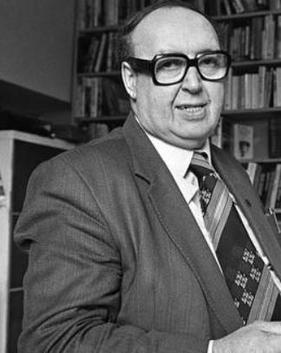Related Research Articles

The Northern Ireland Labour Party (NILP) was a political party in Northern Ireland which operated from 1924 until 1987.

Patrick Joseph "Paddy" Devlin was an Irish socialist, labour and civil rights activist and writer. He was a founding member of the Social Democratic and Labour Party (SDLP), a former Stormont MP, and a member of the 1974 Power Sharing Executive.
John Beattie was a Northern Ireland Labour Party (NILP) politician from Northern Ireland. He was a teacher by profession. In 1925, he became a Member of the Northern Ireland House of Commons for Belfast East. He represented Belfast Pottinger from 1929. At one point he served as leader of the NILP.
Belfast is the largest city and capital of Northern Ireland. It is partly located in County Antrim and partly in County Down.
The Commonwealth Labour Party (CWLP) was a minor political party in Northern Ireland. The party was founded in 1942 by Harry Midgley, former leader of the Northern Ireland Labour Party (NILP), in order to pursue his brand of labour unionism.

David Wylie Bleakley CBE was a politician and peace campaigner in Northern Ireland.
Tom Boyd was a shipyard worker, patternmaker, trade unionist and politician in Northern Ireland.
Sam Kyle was an Irish trade unionist and politician.
Francis "Frank" Hanna, was an Irish politician.
Albert Horatio McElroy was a minister of religion and politician in Northern Ireland.
Robert Getgood was a politician and trade unionist in Northern Ireland. He was born in Ballymacanallen, Co Down, the son of George Getgood, a cobbler, and Eliza Jane Patton. In 1921 he married Annie Thompson.
Murtagh Morgan was a trade unionist and Irish republican politician.
The 1952 Belfast South by-election was held following the resignation of Ulster Unionist Party (UUP) Member of Parliament, Hugh Gage.
The Labour and Trade Union Group was an organisation for supporters of the Militant tendency in Northern Ireland.
Stephen McGonagle was a Northern Irish and Irish trade unionist.
Jack Macgougan was a trade unionist and socialist activist in Ireland.
Alan Carr is a former trade unionist and politician from Northern Ireland.
Robert Martin McBirney QC, known as Martin McBirney, was a magistrate and politician from Northern Ireland who was assassinated.
William John Leeburn was a trade unionist and politician from Northern Ireland.
Joseph Erskine Holmes is a politician in Northern Ireland.
References
- 1 2 Connal Parr, "The pens of the defeated: John Hewitt, Sam Thompson and the Northern Ireland Labour Party", Irish Studies Review, 22:2
- 1 2 Saothar, Vol. 24, p. 116.
- ↑ Aaron Edwards, A history of the Northern Ireland Labour Party, p. 66.
- ↑ "Northern Ireland Parliamentary Elections Results: Boroughs: Belfast Archived 22 July 2018 at the Wayback Machine ", United Kingdom Election Results.
- ↑ "South Belfast 1950–1970", Northern Ireland Elections.
- ↑ "THE QUEEN’S UNIVERSITY of BELFAST", United Kingdom Election Results.
- ↑ Edwards, A history of the Northern Ireland Labour Party, p. 115.
- ↑ Aaron Edwards, "'Unionist Derry is Ulster's Panama': The Northern Ireland Labour Party and the Civil Rights Issue", Irish Political Studies, February 2008.
- ↑ Edwards, A history of the Northern Ireland Labour Party, p. 223.
- ↑ Fortnight , #335–345, p. 115.